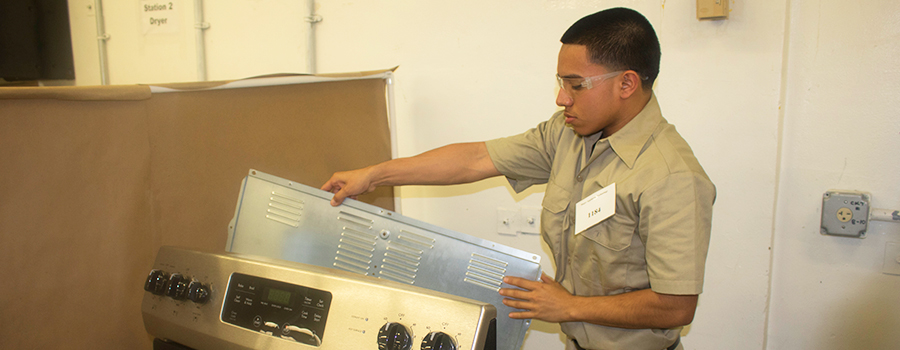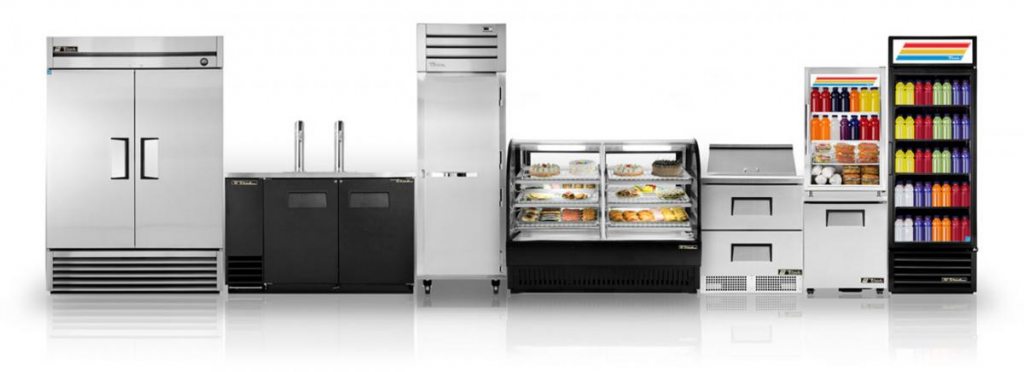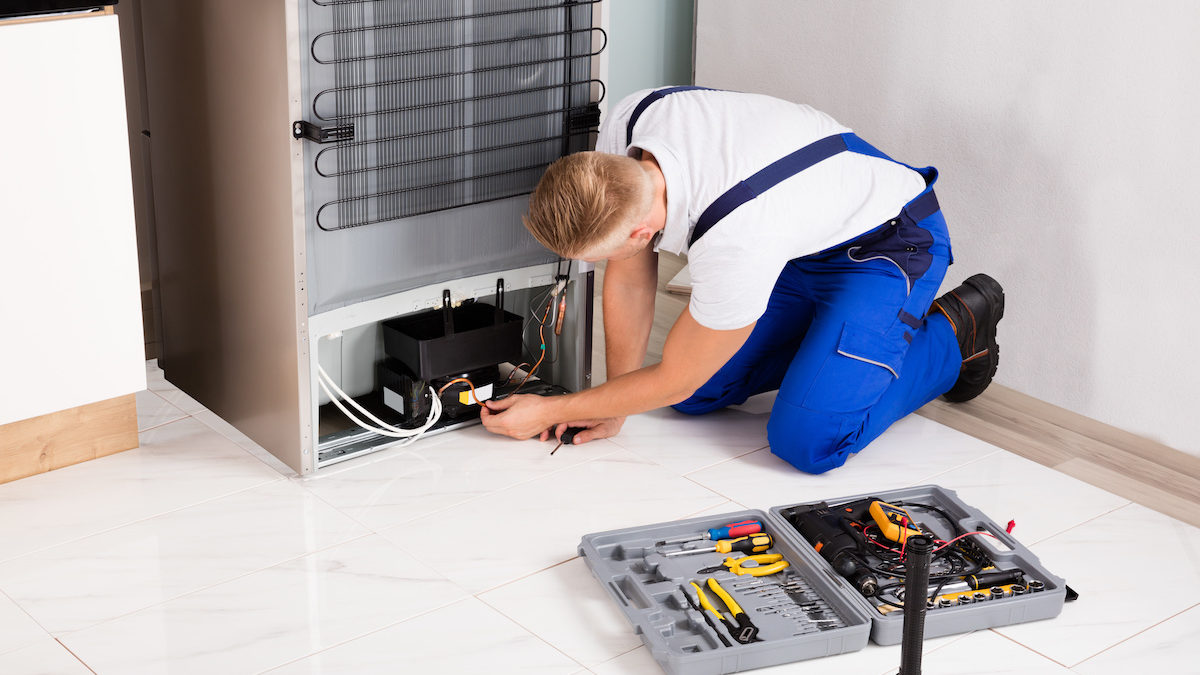How Best Appliance Repair Near You Dependable Refrigeration & Appliance Repair Service Keeps Your Kitchen Running Smoothly
Important Tips for Effective Ref Fixing to Prolong Appliance Life Expectancy
When it comes to your refrigerator, proper fixing and upkeep are important for long life. Understanding typical issues and recognizing when to act can make all the difference.
Understanding Usual Fridge Problems
Refrigerators are essential in keeping your food fresh, however they can experience a range of usual issues that interrupt their efficiency. If you see food spoiling quicker than typical, examine the thermostat settings or take into consideration if the door seals are damaged. Recognizing these issues early can conserve you time and money in fixings, ensuring your refrigerator runs efficiently and efficiently.
Routine Upkeep Practices
To maintain your home appliances running smoothly, you need to stay on top of routine upkeep practices. Tidy the condenser coils, inspect the door seals, and monitor the temperature level settings to assure peak performance. These easy tasks can save you money and time on fixings down the line.
Tidy Condenser Coils Regularly
Cleansing your condenser coils on a regular basis can greatly improve your device's effectiveness. Dirt and dirt build up on these coils over time, causing your appliance to function more challenging and eat more energy. To keep them tidy, unplug your appliance and thoroughly get rid of any type of safety covers.
Check Door Seals
Three basic steps can aid you guarantee your home appliance's door seals are in excellent condition. Second, tidy the seals utilizing cozy, soapy water to eliminate any kind of particles or grime. By following these actions, you'll keep your device's effectiveness and durability, saving you cash on power bills and repair work in the lengthy run.
Display Temperature Settings
Consistently checking your home appliance's temperature level settings is essential for best efficiency and efficiency. Whether you're taking care of a refrigerator, freezer, or stove, keeping an eye on these settings can prevent lots of problems. For fridges, goal for temperature levels between 35 ° F and 38 ° F; for fridges freezer, stick around 0 ° F. If the temperatures are too expensive or reduced, your device may work harder, wasting energy and shortening its lifespan. Use a thermostat to inspect these setups routinely, particularly after major adjustments, like moving your device or changing the thermostat. If you discover variations, adjust the setups as necessary and get in touch with the user guidebook for advice. By remaining aggressive about temperature monitoring, you'll guarantee your devices run efficiently and last much longer.
Fixing Cooling Concerns
When your refrigerator isn't cooling correctly, it can cause ruined food and wasted money, so resolving the issue immediately is vital. Start by inspecting the temperature setups to confirm they're at the recommended degrees, typically around 37 ° F for the refrigerator and 0 ° F for the fridge freezer. If the settings are correct, examine the door seals for any voids or damages; a malfunctioning seal can allow cozy air to go into.
Next, take a look at the vents inside the fridge and freezer. Verify they're not blocked by food products, as this can interfere with air movement. Listen for the compressor; if it's not running or making uncommon noises, it may need interest. Check the condenser coils, generally situated at the back or base of the system. Dust and debris can build up, causing cooling down issues. Tidy them with a vacuum or brush to maximize performance. If problems continue, it may be time to call an expert.
Fixing Water Leak and Ice Build-Up
If you're handling water leak or ice build-up in your appliance, it's important to identify the source of the trouble. By identifying where the water is coming from, you can stop more issues and avoid costly repairs. Let's discover some reliable methods to tackle these common troubles.
Determine Leak Sources
How can you effectively identify the sources of water leakage and ice build-up in your devices? Beginning by inspecting the seals and gaskets on your refrigerator and freezer doors. By systematically examining these areas, you'll determine the source of the trouble, enabling you to take the essential steps to repair it and prolong your home appliance's lifespan.
Stop Ice Development
To avoid ice formation in your home appliances, begin by validating the temperature level settings are suitable. If your refrigerator or freezer is also chilly, it can lead to excessive ice accumulation. Inspect the door seals on a regular basis; harmed seals can let cozy air in, causing condensation and ice formation.
Keep the home appliance well-ventilated and prevent congestion, as this can block airflow - Best Appliance Repair Company In Oro Valley Dependable Refrigeration & Appliance. Also, regularly thaw your freezer if it does not have an automated defrost function.
If you see water leak, identify and take care of any type of blocked drainage holes, as they can add to ice buildup. Clean the coils and confirm they're working appropriately to keep peak efficiency. Taking these steps will certainly help extend your home appliance's life-span and effectiveness.
Resolving Noisy Fridge Seems
While it might appear disconcerting, a loud fridge typically indicates minor issues rather than significant breakdowns. Common wrongdoers include the compressor, fans, and water lines.
Next, look for loose things inside. Often, containers or racks can rattle, developing unwanted noise. Tighten up or reposition them to eliminate the noises.
If you see a clicking noise, it could be the defrost timer. This is usually harmless but might show it requires evaluation.
Finally, confirm your fridge is degree. An out of balance device can produce vibrations and noise. Make use of a degree to check, and change the feet if required. Addressing these problems promptly can assist keep your refrigerator's performance and prolong its life-span.
When to Change Parts vs. Complete Substitute

Consider the price of repair services versus the appliance's value. In addition, if you see recurring issues that keep repeating, it's an indication that your device has actually reached the end of its life.
Understanding When to Call a Specialist
Just how can you inform when it's time to contact an expert for appliance fixing? If you observe unusual noises, scents, or leakages, it's a clear signal that something's wrong. Do not overlook these indicators; they often indicate much deeper issues. If your home appliance quits working altogether or regularly trips breaker, it's one more warning.
You must also consider your own comfort level with repair work. If you're unclear about detecting the trouble or do not have the right tools, it's best to click for info connect for aid. Remember, trying challenging repairs can cause more damages and even safety threats.

Frequently Asked Concerns
Just how Typically Should I Tidy the Fridge Coils?
You need to cleanse your fridge coils every six months. This helps maintain efficiency and avoids overheating. If you discover extreme dust or animal hair, clean them extra often to guarantee your fridge official site runs smoothly.

Can I Use Vinegar for Cleaning My Fridge?
Yes, you can make use of vinegar to cleanse your refrigerator! It's an excellent all-natural cleaner that gets rid of smells and discolorations. Who Repairs Dryers in Oro Valley? Dependable Refrigeration & Appliance Repair Service. Just mix it with water, use it to surface areas, and wipe down for a fresh, clean refrigerator
What Temperature level Should My Fridge Be Ready To?
You should establish your refrigerator to 37 ° F(3 ° C) for optimal food preservation. This temperature keeps your food fresh while preventing wasting, guaranteeing your groceries last longer and minimizing waste. It's a very easy adjustment you can make!
Does a Fridge Required to Be Leveled?
Yes, your refrigerator requires to be leveled. If it's irregular, it can affect cooling efficiency and trigger excess sound. Check the progressing legs and readjust them to guarantee appropriate balance for perfect efficiency.
Exactly How Can I Lower Fridge Energy Intake?
To reduce your fridge's energy usage, keep it tidy and well-ventilated, check door seals for leakages, set the temperature level in between 35-38 ° F, and avoid straining it. These actions can considerably reduce your power expenses.